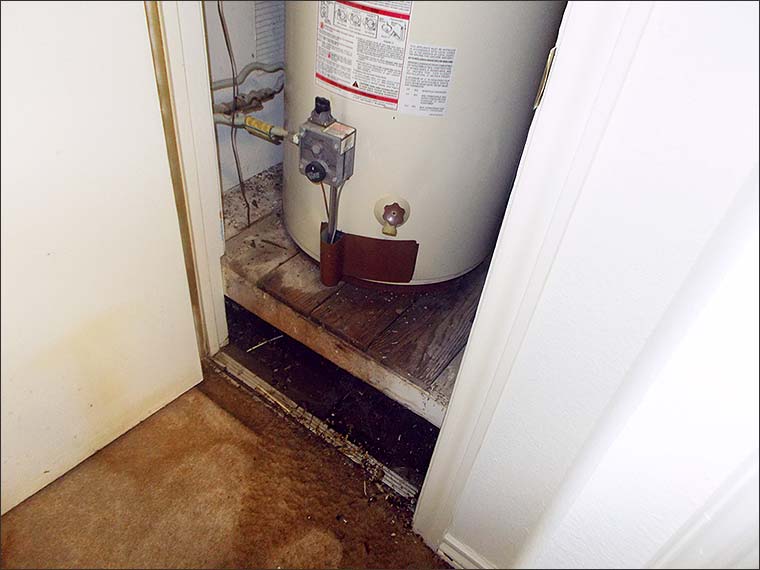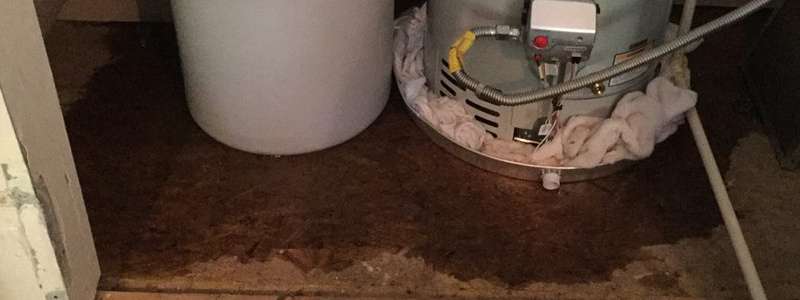Top 5 Reasons Behind Water Leaks
Top 5 Reasons Behind Water Leaks
Blog Article
Each person has got their personal theory on the subject of How to Find and Prevent Water Leaks in Your Home.

"Beware of little expenses. A tiny leakage will sink a fantastic ship." - Benjamin Franklin.
He couldn't have been more appropriate due to the fact that water leaks in our homes cause a waste of resources, increasing our water costs. Although this rise may seem negligible in the beginning, it can result in considerable expenses that can damage your bank. Other than a boost in expenses, water leakages additionally cause undesirable organic development, architectural damages, and also also electrical risks.
If you have a water leakage isn't always very easy due to being not able to see many of the pipework in your house, figuring out. Nonetheless, If you have had an increase in your water costs recently, saw water stains on walls and also ceilings, smelt poor smell, etc. You might wish to think about requesting plumbing solutions to get it had a look at.
There are numerous reasons for water leakages, as well as we have assembled the typical factors below. Check to see if you have had relevant issues in your home recently.
Clogged drains
Food fragments, dirt, and oil can create clogged drains and obstruct the flow of water in and out of your sink. Enhanced pressure within the gutters can end and cause an overflow up cracking or rupturing pipelines if undealt with. To stay clear of blocked drains in your house, we encourage you to avoid pouring particles down the drain and normal cleaning of sinks.
High water pressure
You discovered your residence water pressure is greater than usual but after that, why should you care? It's out of your control.
It would certainly be best if you cared since your average water stress should be 60 Psi (per square inch) as well as although your residence's plumbing system is made to withstand 80 Psi. A boost in water stress can put a pressure on your house pipes and also bring about cracks, or even worse, ruptured pipes. Get in touch with an expert regarding controling it if you ever notice that your house water stress is greater than usual.
Corrosion
As your pipework gets older, it gets weaker and also a lot more at risk to rust after the frequent passage of water with them, which can eat away at pipelines and trigger fractures. A visible sign of corrosion in your home plumbing system is staining and also although this may be hard to detect as a result of the majority of pipelines hidden away. We suggest doing a constant check-up every couple of years and alter pipes once they are old to make sure an audio plumbing system
Weakened pipeline joints
Pipeline joints are the parts of our plumbing system where the pipelines attach. It is crucial to keep in mind that also though pipes are designed to withstand stress and last for a while, they weren't designed to last for life; as a result, they would wear away over time. An usual indicator of harmed pipeline joints is extreme sound from faucets.
Busted seals
An additional source of water leaks in residences is broken seals of residence appliances that utilize water, e.g., a dishwasher. When such home appliances are mounted, seals are installed around water ports for simple flow of water with the maker. A damaged seal can trigger leak of water when in usage.
With little or no knowledge of plumbing, understanding your home's plumbing system enough to fix some of these issues (without effect) can be a trouble. Contact plumbing professionals in Pittsburgh, Providence, Rochester, and environ today, and also they'll make those problems vanish.
He couldn't have actually been more appropriate since water leaks in our residences result in a waste of resources, boosting our water expenses. If you have had a boost in your water costs lately, observed water discolorations on ceilings and walls, smelt poor odor, etc. A rise in water pressure can place a strain on your residence pipelines as well as lead to splits, or worse, ruptured pipes. One more reason of water leaks in houses is damaged seals of home appliances that utilize water, e.g., a dishwasher. When such home appliances are mounted, seals are mounted around water connectors for simple passage of water with the equipment.
5 TIPS IN DETECTING A WATER LEAK IN YOUR HOUSE
Water leaks can be hard to find in your home, yet they can be so common. We rely on water every day in our home, which is why a leak can cause big problems. By detecting them early, you can save money and further damage, getting the problem fixed as soon as possible. Here are 5 tips to help you detect a water leak in your home, so you can contact a plumber straight away and get the issue sorted.
Check your water meter
Many people underestimate the value of the water meter in their home. It can be one of the best ways to tell if you have a leak early on, so you can get on top of it before issues start arising. Start by turning off all the water in your home: taps, washing machine, dishwasher, etc. Now take a look at the meter – if it’s still changing with everything turned off, it’s likely you have a fast-flowing leak that you need to get on top of straight away. If nothing changes, then leave your meter for an hour or two and come back to it. Did it change in this time? It’s likely you have a slower leak, which isn’t as urgent but still handy to get fixed so it doesn’t become a bigger problem.
Keep an eye on your bill
Another good way to detect a leak in your home is by keeping an eye on your water bill. It helps if you have a past bill from the same period of time. You can compare like for like and determine whether your water usage has increased significantly. If it has, there may be a leak in your system that you haven’t picked up before. A professional plumber can check through all of your pipes and determine where it is coming from.
Look for damage
If you have a leak inside your home, you will notice damage over time. Take a look at your showers and bathtubs and note whether any of the tiles surrounding the area seem to be discoloured or damaged in any way. There may be water stains, mould or peeling material that has resulted from a build up of moisture over time. Make sure you take a look under sinks at the back of cupboards that don’t get accessed regularly. This is where damage can go unnoticed and build up over periods of time.

I stumbled upon that blog entry about How to Find and Prevent Water Leaks in Your Home while browsing the search engines. You should take the opportunity to share this entry if you enjoyed reading it. I thank you for reading our article about How to Find and Prevent Water Leaks in Your Home.
Plumbing emergency? We're ready. Report this page